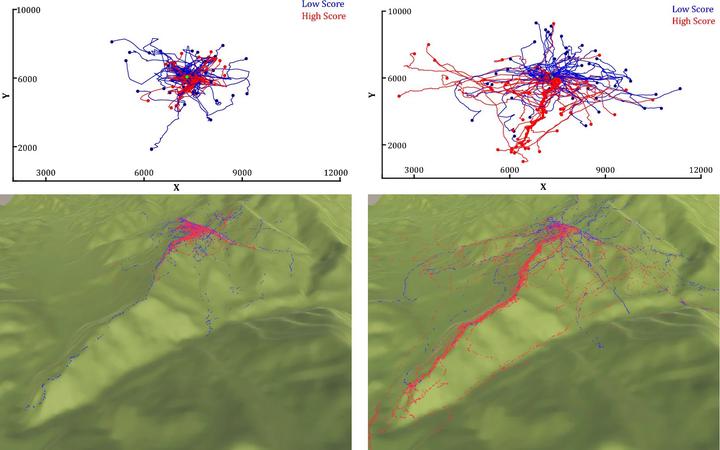
Abstract
Efficient foraging depends on decisions that account for the costs and benefits of various activities like movement, perception, and planning. We conducted a virtual foraging experiment set in the foothills of the Himalayas to examine how time and energy are expended to forage efficiently, and how foraging changes when constrained to a home range. Two hundred players foraged the human-scale landscape with simulated energy expenditure in search of naturally distributed resources. Results showed that efficient foragers produced periods of locomotion interleaved with perception and planning that approached theoretical expectations for Lévy walks, regardless of the home-range constraint. Despite this constancy, efficient home-range foraging trajectories were less diffusive by virtue of restricting locomotive search and spending more time instead scanning the environment to plan movement and detect far-away resources. Altogether, results demonstrate that humans can forage efficiently by arranging and adjusting Lévy-distributed search activities in response to environmental and task constraints.